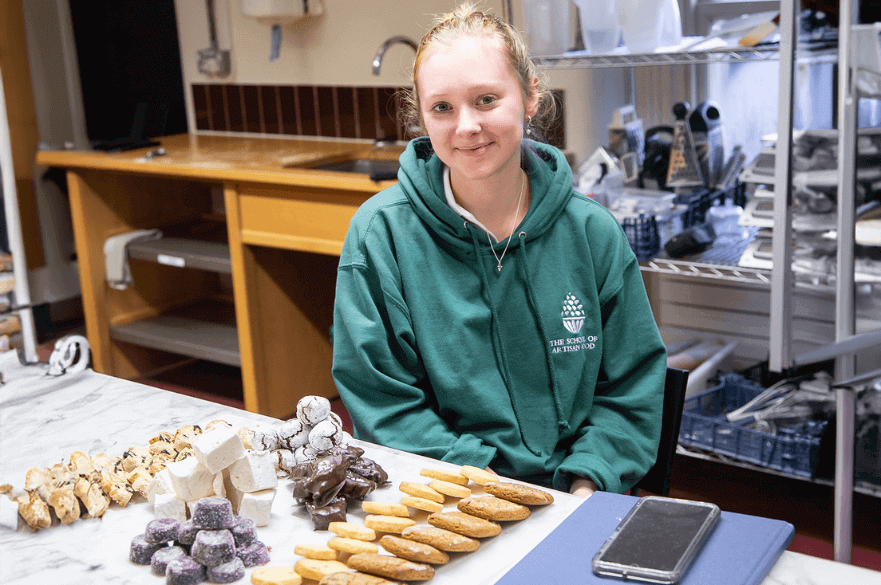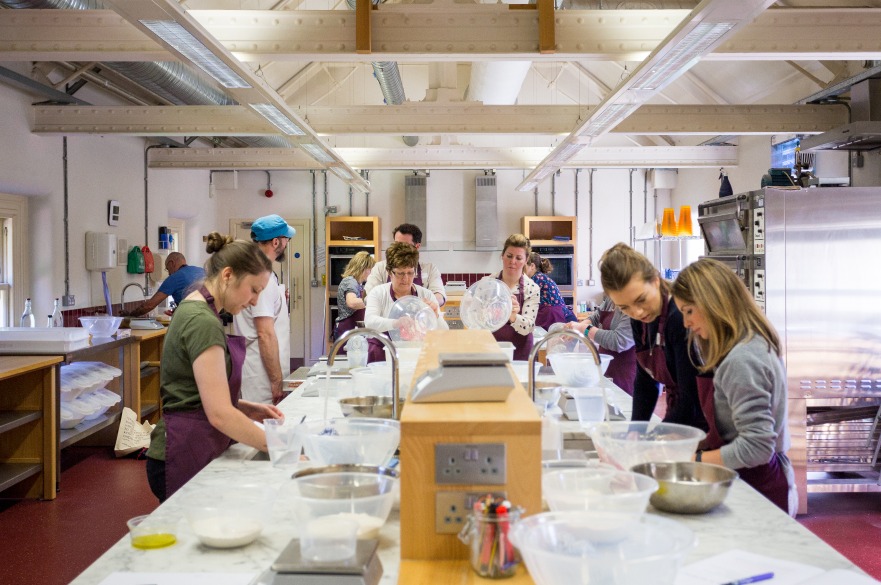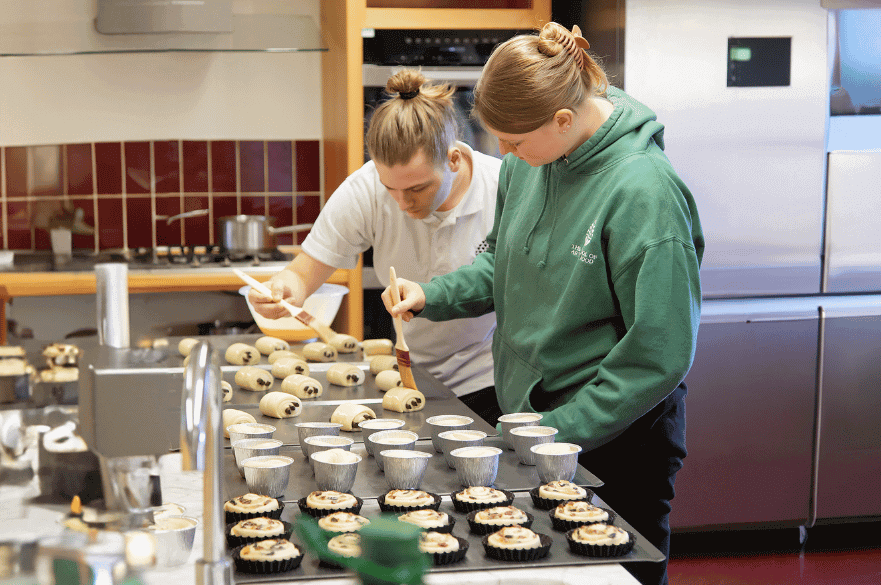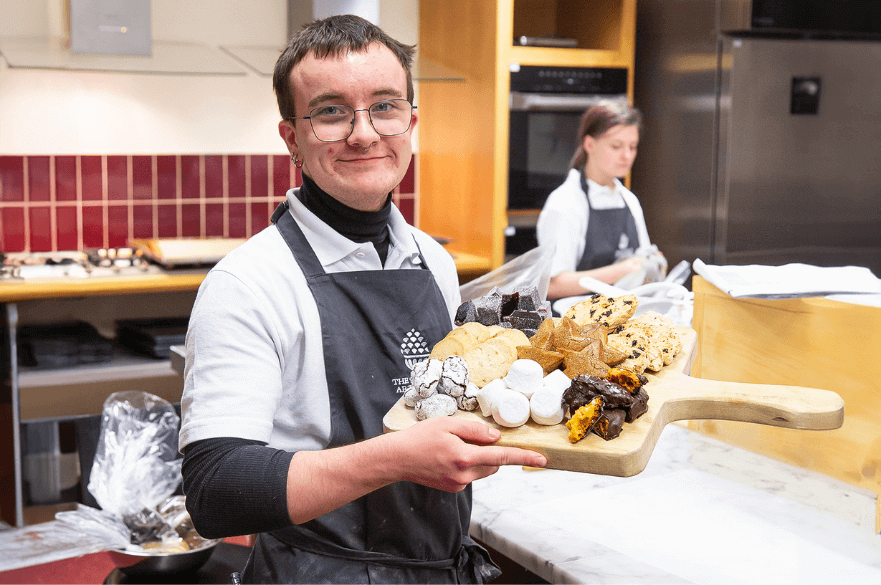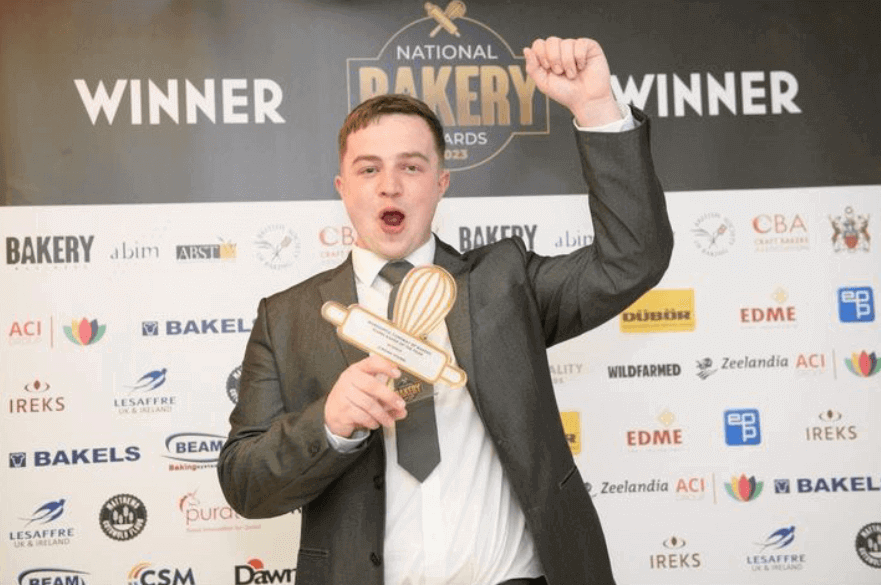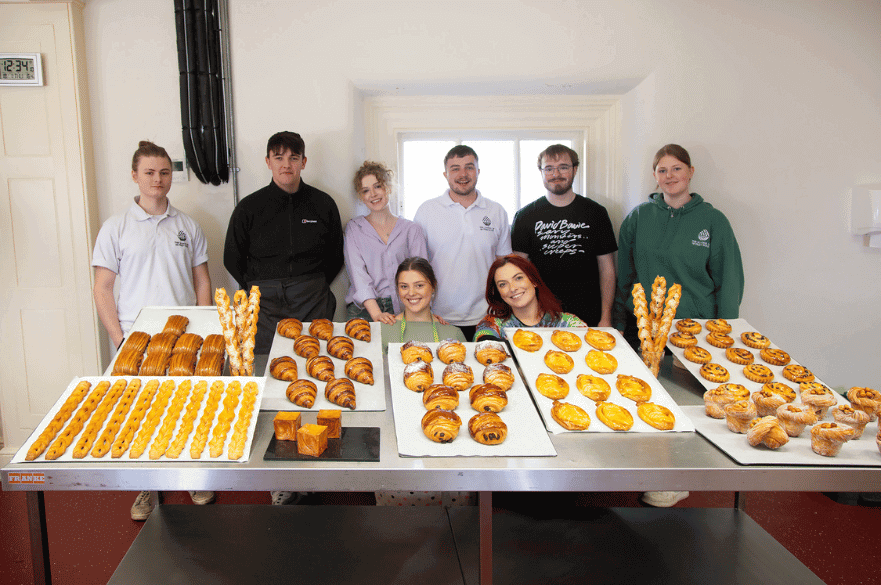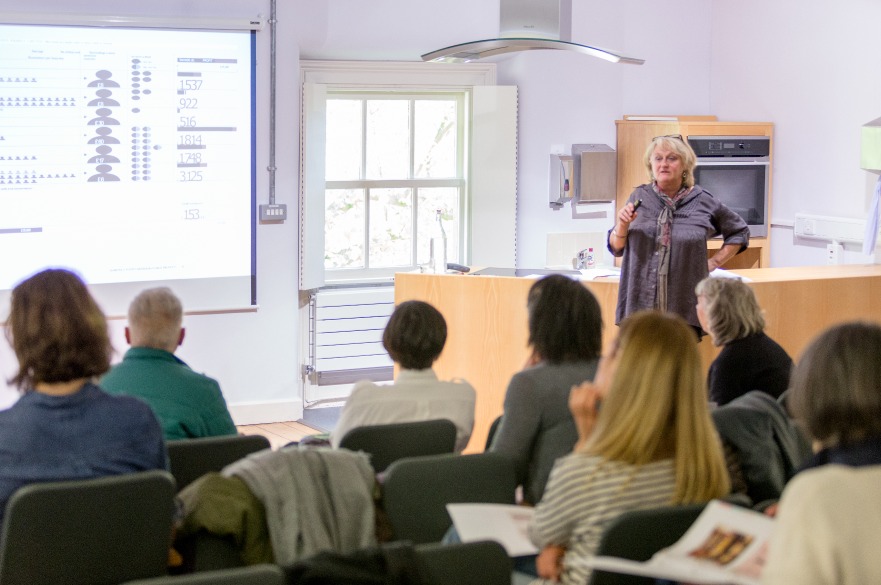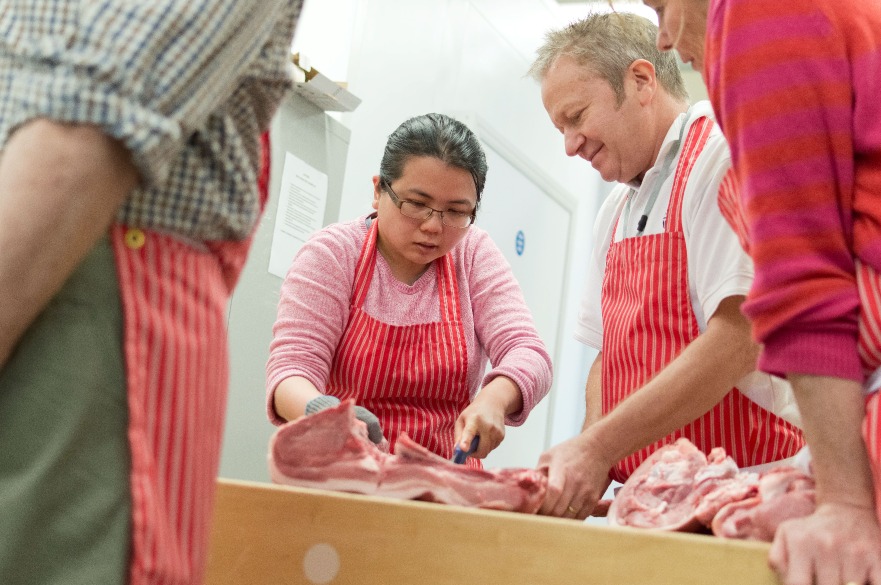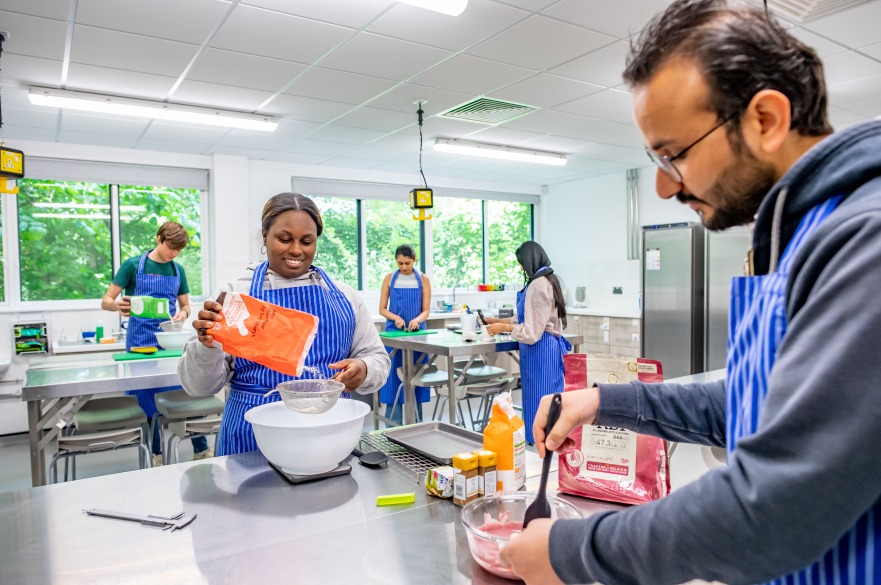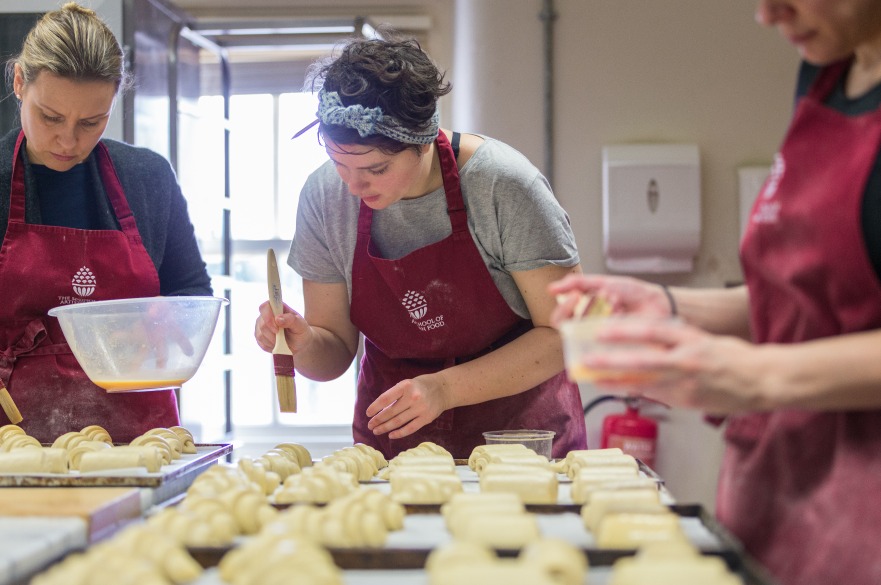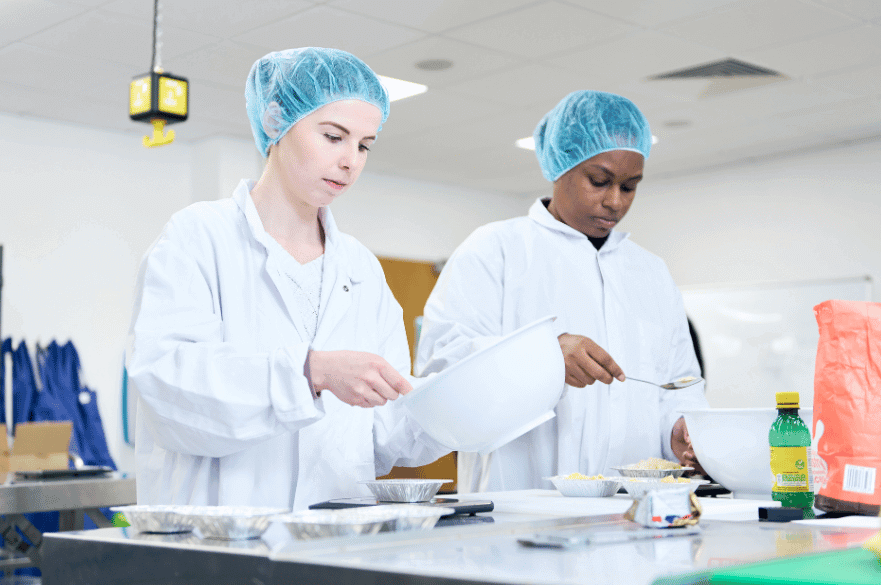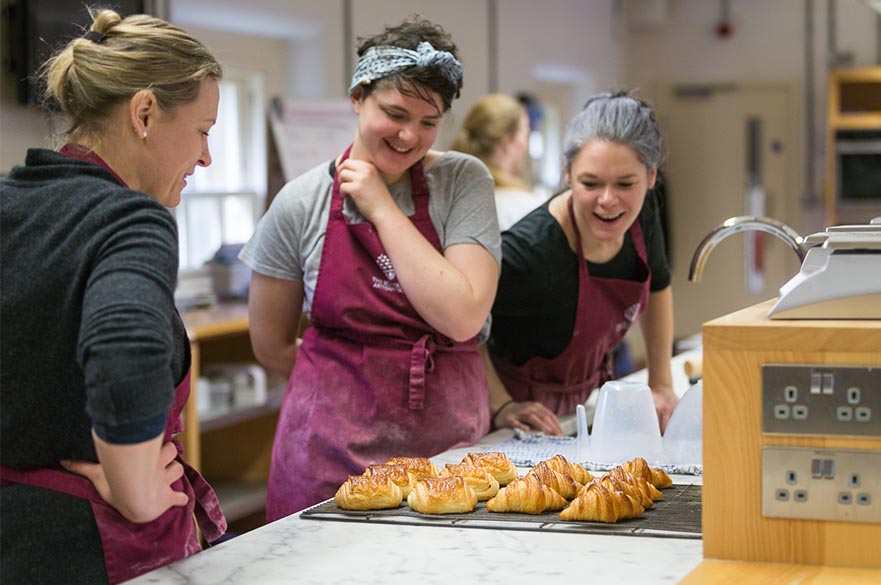This course is in Clearing
Offers from 48 tariff points
About this course
This unique course will provide you with the skills and knowledge to work in the artisan food industry, meeting the increasing demand for high quality food that is sustainably produced. This course is delivered by professional artisan food specialists at The School of Artisan Food – based on the Welbeck Estate – alongside food technology specialists at Nottingham Trent University. You’ll study the functionality of high-end food ingredients, and practical skills such as breadmaking, patisserie and viennoiserie, butchery, charcuterie and cheesemaking.
Which course is right for you?
We offer two artisan food production degrees, each with a different focus:
- BSc (Hons) Artisan Food Production - explores the context of artisan food within the wider food industry, with some hands-on practical modules. You will also explore the ethical and sustainability issues in food production.
- FdSc Artisan Food Production (this course) - is more vocational, with greater emphasis on practical and applied skills, ideal for those who want to set-up an artisan food business.
5
What you’ll study
During this course you'll learn the skills needed to work in the artisan food industry. From developing practical expertise and producing a range of food products to setting up an artisan food business. You'll also study the functionality of high-end food ingredients, and practical skills such as bread-making, patisserie and viennoiserie, butchery, charcuterie and cheese-making.
Artisan Bread Production (40 credits)
Through a mixture of theory and practical bread making sessions, develop your understanding of the fermentation process and critical key stages to bread making. You’ll also learn about recipe formulation, and raw bread material function in fermented baking.
Patisserie and Viennoiserie (20 credits)
Gain a knowledge of the ingredients, artisan production methods, baking techniques, and vocabulary associated with artisan patisserie and viennoiserie. This module will also equip you with the necessary technical skills needed to produce a variety of different artisan products.
Artisan Dairy Production (20 credits)
This module will provide a background to the UK dairy industry including sourcing, quality of milk and cattle breeds. You’ll gain an in-depth knowledge of the production of dairy products, including a range of cheese types and undertake practical sessions to manufacture hard and soft cheeses, cream, butter, yoghurt and ice cream.
Food Chemistry (20 credits)
Understand the key scientific principles relevant to food science, including the constituents of food and the effects these have on both their properties and functions. You’ll also develop the skills necessary to undertake simple laboratory analysis of food and interpret the data.
Artisan Business Entrepreneurship and Marketing (20 credits)
Gain the skills needed to plan an independent artisan business, including an overview of the key choices facing a start-up business, and developing a realistic marketing proposition for an artisan food business. You’ll also explore sustainability, ethical and health issues relating to food production, consumption and quality, and how this relates to producers.
Consumer Nutrition and Health (20 credits)
Gain an understanding of human nutrition and the ability to analyse foods for macronutrients associated with nutrition and allergies. Throughout this module, you’ll also learn how consumer nutrition needs and trends affect product development, processing and packaging
Advanced Artisan Bread Production (20 credits)
Develop your bread-making skills further, developing more complex techniques and the theoretical knowledge behind them. You’ll also be exposed to larger batch production, and the requirements of this scale of production.
Artisan Business Operations and Finance (20 credits)
This module will provide you with the tools needed to operate an independent artisan business and understand the associated finance including feasibility, and start-up options.
Artisan Business Planning (20 credits)
Learn how to develop a financially robust business plan for an artisan start-up and pitch to investors. You’ll gain an understanding of return on investment and its application in business planning, and risk management within an artisan food business.
Food Industry Professional Practice (20 credits)
Throughout this module you'll develop a portfolio and professional social media profile. You’ll also be given support with your continuing professional development, and engage with our university employability team to improve your future graduate work prospects.
You'll also choose one optional module:
Artisan Butchery and Charcuterie (20 credits)
Gain an insight into traditional butchery methods and techniques focusing on three main meat animals - pigs, cattle and sheep. You’ll be introduced to basic anatomy, knife skills, an overview of livestock production, and the principles of transforming meat into charcuterie using curing, fermentation and smoking.
Advanced Patisserie, Viennoiserie and Chocolate (20 credits)
Learn about the ingredients, advanced artisan production methods, and baking techniques required to produce a range of chocolate products, chocolate patisserie, and French patisserie and viennoiserie products. You’ll also develop knowledge of the composition of various cocoa beans, learning how and where they are grown.
We regularly review and update our course content based on student and employer feedback, ensuring that all of our courses remain current and relevant. This may result in changes to module content or module availability in future years.
Don’t just take our word for it, hear from our students themselves
Student Work
Video Gallery
How you're taught
On this course your teaching will be split between The School of Artisan Food, based in north Nottinghamshire on the Welbeck Estate, and Nottingham Trent University Brackenhurst Campus.
You'll learn via a variety of lectures, seminars, workshop, laboratory and practical sessions. Applied practice is integral to this course and you'll be supported to gain relevant industry experience.
Assessments include assignments, portfolios, team presentations, practical assessments, exams, class tests, project work, and case studies.
Please note that field trip locations may vary and are subject to availability and change.
Careers and employability
Your future career
On completion of the course you will be fully enabled with all the entrepreneurial theories and skills to help you create your product and outline your business plan.
If you feel you need additional support to realise your business proposition, the NTU Enterprise Centre are able to provide additional support to entrepreneurs and new businesses.
Work-like experience projects
You will also benefit from work-like experience opportunities embedded into your course, allowing you to engage directly with industry and develop essential professional skills, knowledge and attributes for future career success. Recently, our Artisan Food Production students completed a work-like project with Dropworks Distillery to create a viable marketing plan for a new or existing artisan product or business.
What our students are doing now
Lucy Green
We spoke to FdSc and BSc Artisan Food Production student Lucy Green about her time studying both courses, what she learned, how she's been able to apply it to her current roles and why she would recommend the courses.
Kirsty Spooner
Hannah Johnson
Campus and facilities
The School of Artisan Food has an outstanding reputation for the quality of training it provides, and you’ll benefit from staff who are some of the most skilled and experienced artisan producers and practitioners in the UK, Europe and beyond.
They also boast newly refurbished, purpose-built training rooms and a demonstration theatre, which all include state-of-the-art specialist equipment.
Meanwhile you’ll also have access to all of the facilities at Nottingham Trent University. As a dedicated home for our animal, rural and environmental science courses, the Brackenhurst Campus has a character all of its own. From the population of almost 2,000 students and staff to the animals themselves — cats and cattle, sheep and horses — it’s all about community. Relax with a coffee in the Orangery; kick back with your coursemates in the Brack Bar; enjoy the peace and quiet of our Victorian walled garden or Eco-Library; grab a pal and wander through 500 acres of stunning countryside.
Our Brackenhurst Campus sits on the doorstep of Southwell: a picture-perfect market town filled with rustic pubs, cosy cafés, and boutique shops. A little further afield, and served by reliable buses that run late into the night, you’ve got Nottingham — one of Britain’s top 10 student cities, and one of Europe’s top 25. It’s stuffed with history, culture, and well-kept secrets to discover at your leisure: enjoy lush green spaces, galleries, hidden cinemas and vintage shopping by day, and an acclaimed food, drink and social scene by night.
Entry requirements
This course is in Clearing
Looking for a place in Clearing? We are accepting application and would love to hear from you!
UK students
This course is in Clearing
Looking for a place in Clearing? We are accepting applications and would love to hear from you!
Clearing requirements
From 48 UCAS tariff points from up to 3 qualifications.
To discuss our entry requirements and see what we can offer you, call us now on +44 (0)115 848 6000. Alternatively, if you already have your qualifications, apply online via our Clearing Application form.
Preparing for results day? Beat the queue and sign up for NTU Priority for up-to-date information about all things Clearing. You’ll get an offer ahead of Clearing, subject to you achieving the required grades on results day.
Additional requirements
GCSE English and Maths grade C / 4.
Additional requirements for UK students
There are no additional requirements for this course.
Meeting our entry requirements
Hundreds of qualifications in the UK have UCAS Tariff points attached to specific grades, including A-levels, BTECs, T Levels and many more. You can use your grades and points from up to three different qualifications to meet our criteria. Enter your predicted or achieved grades into our Tariff calculator to find out how many points your qualifications are worth.
Other qualifications and experience
NTU welcomes applications from students with non-standard qualifications and learning backgrounds, either for year one entry or for advanced standing beyond the start of a course into year 2 or beyond.
We consider study and/or credit achieved from a similar course at another institution (otherwise known as credit transfer), vocational and professional qualifications, and broader work or life experience.
Our Recognition of Prior Learning and Credit Transfer Policy outlines the process and options available for this route. If you wish to apply via Recognition of Prior Learning, please contact the central Admissions and Enquiries Team who will be able to support you through the process.
Getting in touch
If you need more help or information, get in touch through our enquiry form.
International students
This course is in Clearing
Looking for a place in Clearing? We are accepting applications and would love to hear from you!
Clearing requirements
From 48 UCAS tariff points from up to 3 qualifications.
To discuss our entry requirements and see what we can offer you, call us now on +44 (0)115 848 6000. Alternatively, if you already have your qualifications, apply online via our Clearing Application form.
Preparing for results day? Beat the queue and sign up for NTU Priority for up-to-date information about all things Clearing. You’ll get an offer ahead of Clearing, subject to you achieving the required grades on results day.
Additional requirements
GCSE English and Maths grade C / 4, or equivalent.
Additional requirements for international students
There are no additional requirements for this course.
English language requirements
View our English language requirements for all courses, including alternative English language tests and country qualifications accepted by the University.
If you need help achieving the language requirements, we offer a Pre-Sessional English for Academic Purposes course on our City campus which is an intensive preparation course for academic study at NTU.
Other qualifications and experience
If you have the right level of qualifications, you may be able to start your Bachelors degree at NTU in year 2 or year 3. This is called ‘advanced standing’ entry and is decided on a case-by case basis after our assessment of your qualifications and experience.
You can view our Recognition of Prior Learning and Credit Transfer Policy which outlines the process and options available, such as recognising experiential learning and credit transfer.
Sign up for emails
Sign up to receive regular emails from the International Office. You'll hear about our news, scholarships and any upcoming events in your country with our expert regional teams.
Getting in touch
If you need advice about studying at NTU as an international student or how to apply, our international webpages are a great place to start. If you have any questions about your study options, your international qualifications, experience, grades or other results, please get in touch through our enquiry form. Our international teams are highly experienced in answering queries from students all over the world.
Policies
We strive to make our admissions procedures as fair and clear as possible. To find out more about how we make offers, visit our admissions policies page.
